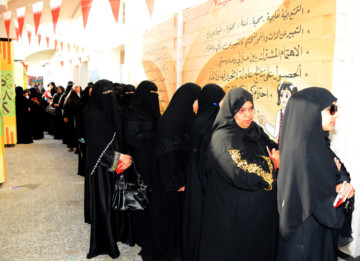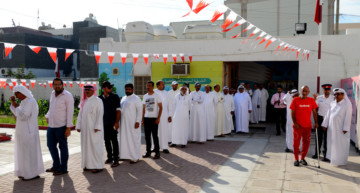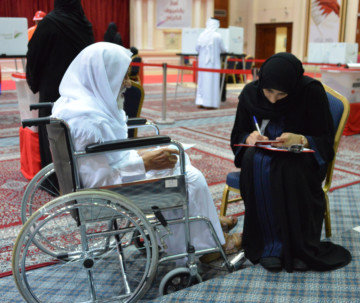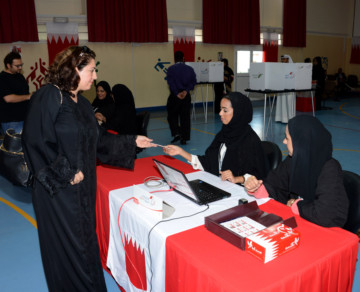
Manama: Bahraini officials on Saturday afternoon reported large numbers of voters queuing up at polling stations to cast their ballots and elect the 40 lawmakers who will represent them in the 2014-2018 legislative term.
Polling stations opened on time at 8 am to accommodate the voters and the voting process would last until 8 pm, they said.
They added that 349,713 Bahrainis, including 175,998 men and 173,175 women, were listed to elect their lawmakers from the 266 candidates vying for the legislative seats.
“We are pleased with the process so far and reports from the polling stations indicate a high number of voters have come to cast their ballots,” Abdullah Al Buainain, the executive director of the elections said. “Participation at the general polling stations is very high,” he told the media.
Bahraini officials designated 40 polling stations, one in each of the electoral districts, and 13 public stations where voters can cast their ballots regardless of their constituencies.
Voters could be called again to cast new ballots on November 29 if no winner is declared in their constituency. A candidate needs more than 50 per cent to carry the constituency, a feat that seemed a formidable challenge when more than 10 hopefuls are competing for a single seat.
Most of those who signed up to run for parliament are independent candidates who seem to have received pledges of support from constituents who said that political societies could not fulfill the promises they made in 2010 when the last parliament was elected.
Former lawmakers said they expected the lower chamber of the bicameral parliament to be changed by around 70 per cent.
The elections this month in Bahrain marks a series of firsts, mainly related to the highest number of voters, the largest number of candidates, the greatest number of women at 22 and the new shape of the electoral constituencies following their dramatic redrawing that reduced differences and brought about comparable sizes.
Four political societies from the opposition are boycotting the elections, but officials said that the quadrennial event would not be stopped or delayed by the calls to boycott it.
The opposition boycotted the elections in 2002, but reversed its stance in 2006 and 2010, allowing Al Wefaq, the largest society then, to carry 17 and 18 seats consecutively. All the winners were men as the society, like the other religious societies in the country, refused to field women.
Al Buainain said that the polling would be closely monitored by eight civil societies and 350 observers.
“They are all Bahrainis because these elections since Day One in 2002 have been a purely Bahraini product. The presence of judges throughout the process is a great guarantee of the fairness of the elections,” he told the media.















